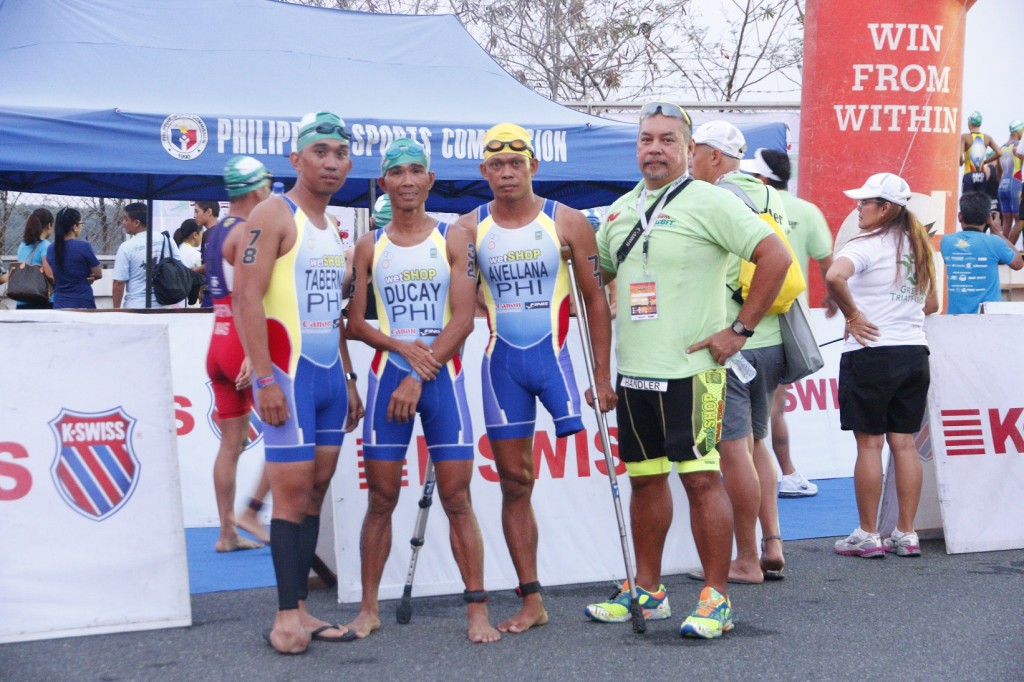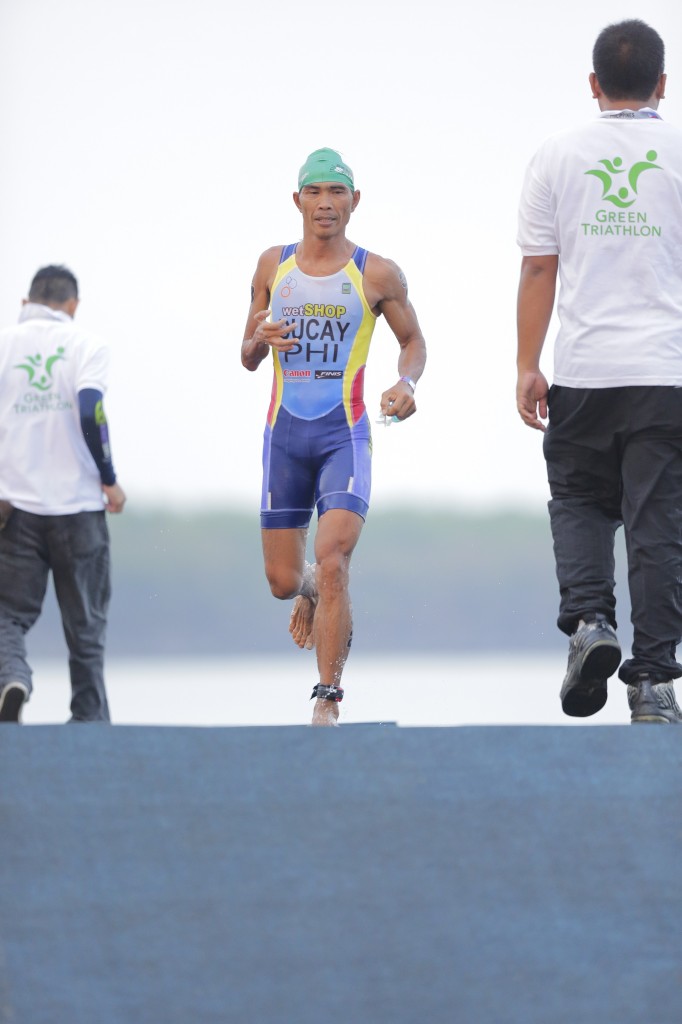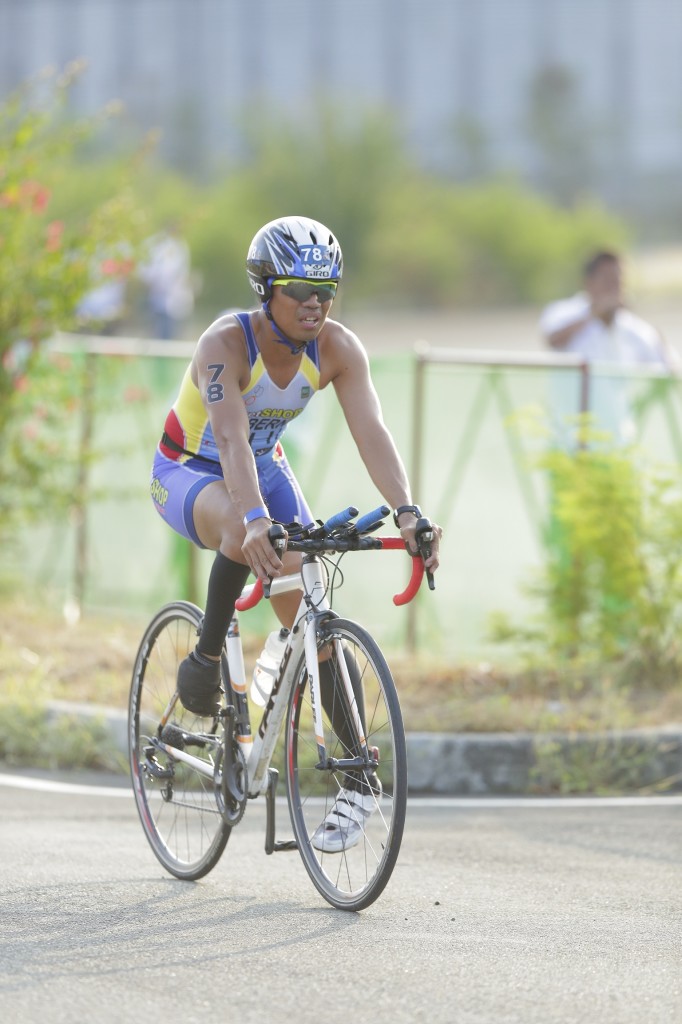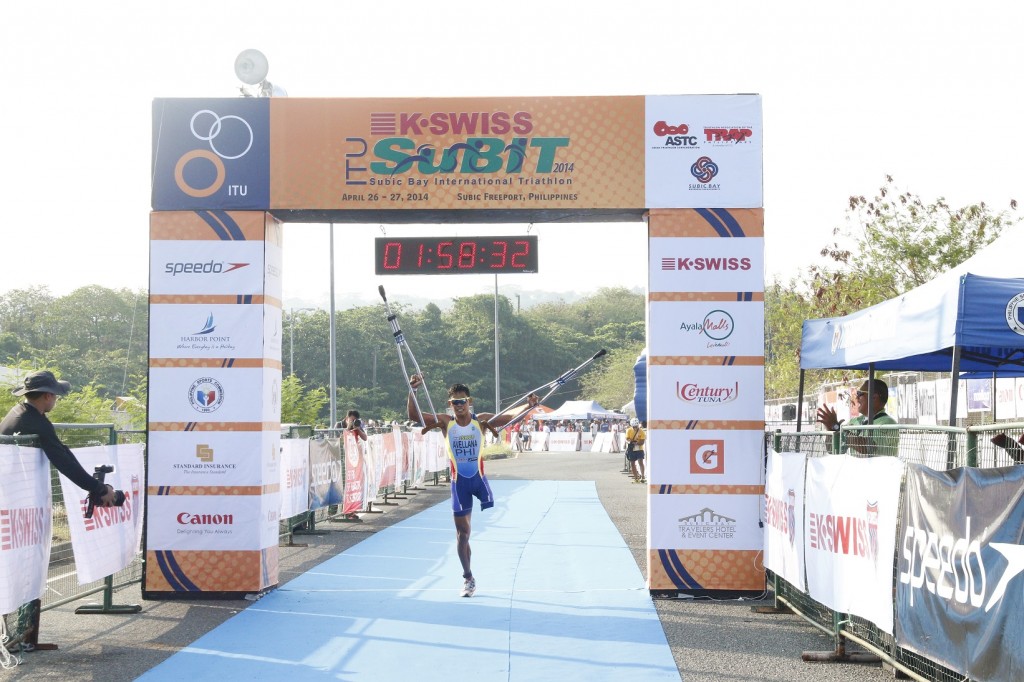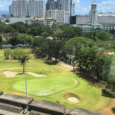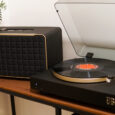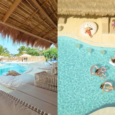The Mind Behind PWD Champs
Coach Vince Garcia (right) of the Philippine National Paratriathlon Team preps his paratriathletes Godfrey Taberna, Sixto Ducay and Andy Avellana minutes before the gun start of the Asian Paratriathlon Championships in Subic
Competing in triathlons, needless to say, is not a walk in the park. But for Vince Garcia, a triathlon coach for persons with disabilities (PWDs), the ability or inability to perform in any gruelling sport rests on the mind.
“Whether you think you can, or think you can’t, you’re right. It’s a mindset eh,” Garcia said, quoting Henry Ford, after the K-Swiss Subic Bay Asian Paratriathlon Championships last April. In the tournament, three of his paratriathletes in the national team competed and finished strong in their respective categories.
Champion runner Sixto Ducay brought home gold this time in the TRI-4 (arm impairment) category after winning only silver last year. Gold medalist Andy Avellana, originally a high jumper with an amputated leg, took gold again after finding no challenger in TRI-2 (severe leg impairment). Lastly, club-footed cyclist Godfrey Taberna settled for fourth place in the TRI-5 (leg impairment) class on his maiden race as a paratriathlete.
“Before paratriathlon, they were doing relays – there’s a swimmer, a cyclist, and a runner. Paratriathlon only started recently,” said Garcia. But despite their recent entry to the sport, his team, who greatly idolizes South African PWD athlete Oscar Pistorius, had their eyes already set on a much bigger stage: the 2016 Paralympics in Rio de Janeiro, Brazil. “We’re kind of looking forward to that,” he said, adding that competing in the Paralympics is the biggest dream of any PWD athlete.
Sixto Ducay emerges strong from the open water despite his unusable right arm
Despite their will and successive victories, Garcia remains realistic about his athletes’ needs, noting their difficulty due to the lack of proper equipment. Raul Angoluan, a double arm amputee who is a veteran of 50-kilometer ultra-marathons, failed to participate in the Asian Paratriathlon Championships because of an ill-equipped bicycle.
Preparation for the competition only lasted for a few weeks, according to Garcia, who shared that the team concentrated on their individual sport instead of full paratriathlon training in the previous years. But to get ready for Rio 2016, Garcia said that there will be a shift to make themselves more of a paratriathlete and make their single sport secondary.
Veteran cyclist and club-footed Godfrey Taberna speeds up in the race
Before Rio 2016 though, other prestigious events are already laid out such as the World Paratriathlon Championships in Edmonton, Canada in August. However, their chances of competing may depend on those who can lend a helping hand.
Garcia’s team found one in Canon Marketing Philippines, Inc. (CMPI), a world leader imaging company known for its numerous programs on PWD welfare, who backed their participation in the Asian Paratriathlon Championships. “We see the paratriathletes’ potential to bring glory to our country and their hard work is beyond compare. That’s why it is about time we give PWD athletes the same level of support we give to regular athletes,” said Alan Chng, CMPI president and CEO.
According to Garcia, he expects more PWDs to try out paratriathlon next year. “My goal for them is to excel in whatever they do. Then once they’ve gone past this, I’ll turn them into coaches,” he said. Garcia said he is targeting a younger PWD crowd to adopt the sport. “We’ll start them young.”
Andy Avellana celebrates victory upon crossing the finish line
Asked what counsel they can give to PWDs who feel rejected, the paratriathletes all said that PWDs should recognize the areas where they can excel in, rather than look down on themselves. However, the coach offered a firm piece of advice to fully abled individuals who doubt their own abilities. “The only thing standing before you and your dreams is an excuse. Whenever you don’t feel like training, think of them. If PWDs can compete side by side with normal athletes, you can definitely do it too.”

